#dashed my dreams of a bar table I really wanted today when I measured the kitchen isr just a little too big
Explore tagged Tumblr posts
Text


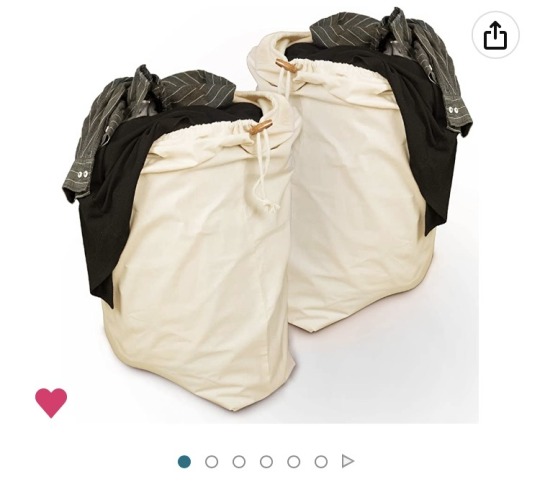
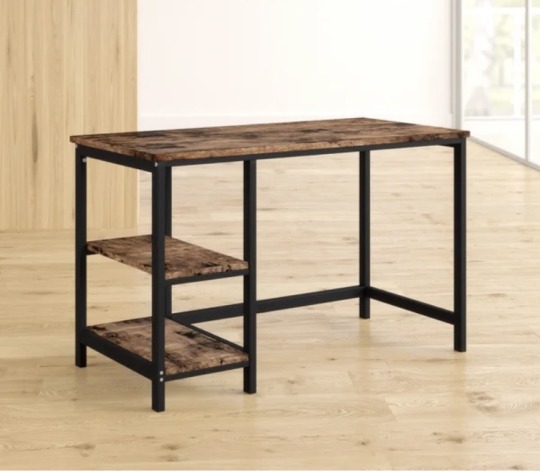


Girlies we are continuing to drain my bank account
#none of the above is ordered yet I wanna get closet and bed done#to see how it looks in the space#and I have to measure the bathroom better for the set in the middle First row#but I'm p sure it fits#I'm kinda scared my room will be cramped with the desk but I need one ooof#dashed my dreams of a bar table I really wanted today when I measured the kitchen isr just a little too big#but my bf said he might build one for my bday yaaay#the flooring is for the balcony btw!! there's ugly green carpet out there rn#I'm also bringing a lot of decoration stuff from the old apartment but most of the furniture belongs to my bf lmao#or we built it custom for the apartment
8 notes
·
View notes
Text
Jenny Lewis Escapes the Void
Pitchfork March 21, 2019
After a turbulent childhood and two decades of brilliantly vulnerable songs, the L.A. idol has finally arrived at something like happiness.
By Jenn Pelly
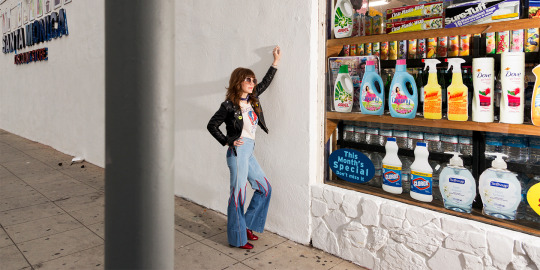
Jenny Lewis and I are in her brown Volvo, idling outside her childhood home. On a Tuesday afternoon in Los Angeles’ San Fernando Valley, we are two blocks from Van Nuys Middle School, where Lewis once sang “Killing Me Softly” in a talent show and got suspended for flashing a peace sign in a class photo (it was mistaken for a gang symbol). We are walking distance from what used to be a Sam Goody record store on Van Nuys Boulevard, where Lewis once bought a life-changing tape of De La Soul’s 3 Feet High and Rising, stoking her obsession with magnetic wordplay, as well as her first Bright Eyes CD, Fevers and Mirrors, which she quickly shared with the three men in her burgeoning indie band, Rilo Kiley, in the early 2000s.
We are not far from the bar where Lewis’ older sister, Leslie, sings in a cover band every Saturday, following in the tradition of their parents, who sang covers in a Las Vegas lounge act called Love’s Way in the 1970s. And that strip-mall pub is just across from the movie theater where Lewis and her mother once conspired to steal a cardboard cutout of Lewis’ 13-year-old self—a souvenir from when, as one of the busiest child actors of her generation, she starred alongside Fred Savage in the 1989 video game flick The Wizard.
Lewis left the Valley alone when she was 16 and vowed to never go back. “That was my number one goal: just to get out,” she tells me now, at 43. But on the occasion of her fourth solo record, On the Line, I asked for a tour of her past life, and here we are—Lewis in a royal blue jumpsuit, with electric blue sneakers and eyeliner to match; me, staring up at the rainbow of buttons fastened to the sun visor of her passenger seat, a collage that includes Bob Dylan, a peace sign, and a hot-orange sad face.
From the driver’s seat, behind her oversized shades, Lewis mentions the Bob Marley blacklight poster that once hung in her Van Nuys bedroom, and I imagine the scores of teenage bedroom walls that have made space for her own iconic image through the years. Lewis’ catalog of cleverly morbid, storytelling songs with Rilo Kiley and the Watson Twins ushered a generation of young listeners through suburban ennui and personal becoming—like a wise older sister we could visit on our iPods, offering an example of how to do something smart and cool with your sadness and your solitude.
In the mid-2000s, Lewis was like an indie rock Joni Mitchell for the soul-bearing Livejournal era, or an emo Dylan, the poet laureate of AIM away messages. Words—some cryptic, some elegant, some brutally, achingly direct—burst from the edges of her diaristic songs, with a dash of Didion-esque deadpan for good measure. It’s no surprise that Lewis’ earliest bedroom recordings were just Casio beats and what she describes as “raps.” Lewis was the first feminine voice I ever encountered leading a band outside the mainstream, with a sound that initially befuddled my ears because it was, in that overwhelmingly male indie era, so rare: a woman’s plainspoken voice.
Cruising around L.A. together, my mind maps the California of her lyrics. What does it mean for the palm trees to “bow their heads”? What becomes of the cheating, California-bound man in Rilo Kiley’s filmic “Does He Love You”—the soulful rave-up where Lewis belted the heroic mantra, “I am flawed if I’m not free!”? But my most pressing question, the one I must ask Lewis: Is California still “a recipe for a black hole,” as she sang on 2001’s “Pictures of Success”? “I guess it’s all the void,” she tells me straight. “It’s not really geographical. That’s what you find out on your adventures. It doesn’t really matter where you go. You accompany yourself there.”
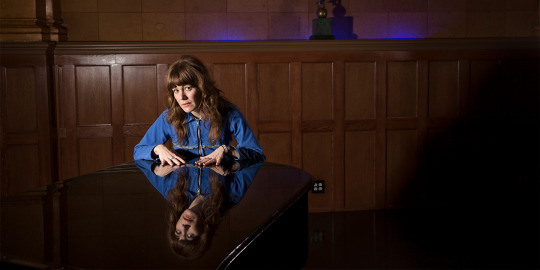
The main destination of our Van Nuys excursion is the small ranch home of Lewis’ youth—or rather, homes, as there are two, practically adjacent. It’s a little complicated, I learn, as are many things with Lewis’ upbringing.
Lewis was born in Vegas on Elvis Presley’s birthday. In 1976, her parents and sister were living out of suitcases on the road, playing Carpenters and Sonny and Cher songs at casinos like the Sands, the Mint, and the Tropicana. “My mom was so pregnant but she would not miss a show,” recalls Leslie, who was 8 at the time. “Jenny would be kicking her on stage, and I remember seeing my mom flinch. I think that was Jenny saying, ‘Let me out, I want to sing!’”
Soon after Lewis was born, her parents divorced, and her father, Eddie Gordon, left the family and continued his career as one of the world’s leading harmonica virtuosos. Lewis’ mother, Linda, moved back to her native Los Angeles, working three jobs to rebuild a life with her daughters. At 2-and-a-half years old, Lewis was discovered by the powerful Hollywood agent Iris Burton (a young Drew Barrymore and the Olsen Twins were among her clients) after the toddler spontaneously wandered over to her table in a restaurant.
When Lewis was 5, she was already supporting Leslie and their mom with her commercial and TV acting, and they bought their humble first home, the one we’re visiting. “But we always used to dream about the house on the corner,” Lewis says, slowly circling the block, “so then my mom bought that house, too.” It’s two doors down, looks pretty similar—why dream of it? “Because it was right there,” Lewis says, “and it was nicer than the one we had!” (A 1992 L.A. Times headline dubbed Lewis “A Teen-Age Actress With 3 Mortgages”—she owned a townhouse in North Hollywood by then as well—calling her “the youngest member of the United Homeowners Association.”) “I know it’s confusing,” Lewis says. “This is part of the simulation; this is craziness. Why did we also want that house?” She erupts into a cackle. “None of this makes any fucking sense.”
In life as in her songs, Lewis is a consummate storyteller, mindful of how tiny details make a great tale. In the car, for instance, she tells me about the time she played Lucille Ball’s granddaughter on the notoriously bad 1986 sitcom “Life With Lucy.” It was the last show Lucy ever starred in, and it was canceled before the first season even finished. The mood was blue, but a wrap party was still planned, and Lewis’ mother convinced Lucy to have the gathering at their little house in Van Nuys. “So Lucy rolled up with her two dogs,” Lewis remembers. “She walked in the front door, looked around, and said, ‘What a dump!’”
Lewis’ mother typically attracted fascinating characters to the house—like the producers of the TV special “Circus of the Stars,” who trained Lewis in trapeze; or “Fantasy Island” star Hervé Villechaize, who came over for a scammy “Pyramid Party”; or The Exorcist writer William Peter Blatty. One year on Halloween, at the recommendation of the family’s illusionist friend—who, according to Leslie, levitated Jenny in their house—her mother invited over Ghostbusters star Dan Aykroyd’s brother Peter, who was himself a real-life ghost buster. Peter planned to “check out the levels” of the house.
Intrigued by the Lewis’ paranormal investigation, the local news showed up. Back then, Lewis was hanging out with fellow child actors Sarah Gilbert, Toby Maguire, and Leonardo DiCaprio—who also came through to scope things out. Recalling the ghost-busting scene, Lewis says, “They came over and set up their vague, infrared equipment and they captured some sort of reading coming down the hallway and going into my childhood bedroom.”
I ask Lewis if the ghostbusters’ findings felt accurate. “Well, totally,” she says. “Something was going on. We always had weird vibes in the house. Very dark vibes.”
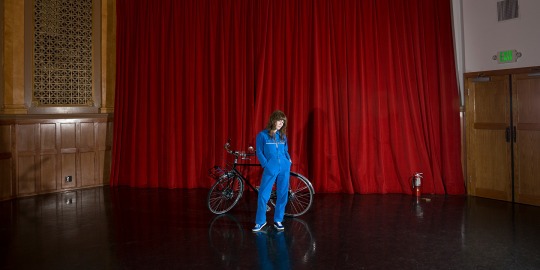
In person, Lewis’ temperament is one of constant cheer. She radiates positivity, takes bong rips in her kitchen, says “dope” and “vibe” often. This sunny disposition is occasionally punctuated by looks of deep, welling concern for others—as if she is on the brink of tears for humanity. Still, she calls herself a “total skeptic,” and tells me that show business trained her, early on, to master the art of getting along. “I didn’t ever wanna be one of the dicks on set—like in a family situation, where one person can really fuck up Thanksgiving,” she says, before veering into more existential territory. “We all know we’re careening towards the end of humanity. I just wanna do my work and hang out with my people.”
It’s only later, while sipping Modelos at the dining room table of her quaint ranch house in the hills of Studio City, that Lewis reveals the source of her childhood home’s “dark vibes” was her mother’s lifelong heroin addiction. “It is painful to go back there,” Lewis tells me. “I get a weird feeling. I don’t know if the ghostbusters could have detected it, but there was some kind of energy that was not conducive to survival. So when I left, I left.”
“My mom was an addict my entire life, and it was a fucking rollercoaster,” she continues. “It lent itself to some amazing situations, but it was manic as fuck, and there were drugs constantly. It’s a lifestyle, and it’s a community to grow up around. I feel grateful for having been witness to some pretty outrageous human behavior from a young age. Nothing really shocks me.”
Leslie attests to their complicated home environment, and recalls “stepping over people trying to find my books to go to school.” She became a mother figure to Jenny, taking her little sister to school on her bicycle and making sure she did her homework. Leslie was just a teenager when she put it together that their mother was pushing Jenny’s acting money into buying drugs and, ultimately, selling them. “It was a terrible realization for both Jenny and I to have,” Leslie says. “I give our mom a lot of credit for being resourceful prior to that. We probably wouldn’t be talking to you today if she hadn’t been so inventive and so diligent. But it escalated.”
When Jenny quit acting in her early 20s, Leslie wasn’t surprised. “I remember her finally having the burden lifted off her shoulders, that she didn’t need to support our mom anymore, and she didn’t need to be told what to do anymore—she was free,” Leslie says. “Her agents were calling me, asking ‘What the hell’s going on? We’re booking her in all this stuff.’ It was a big deal for her to walk away. But she had to do it. I think she didn’t want to be saying other people’s words anymore.” Leslie recalls the bubbly dialogue Lewis would have to recite on screen and adds, “That’s just not where she was at in her life.”
Focusing on her own words, Lewis arrived instead at death, disease, loneliness, deflated dreams. Rilo Kiley’s 2002 breakthrough The Execution of All Things opens with a hushed monologue from Lewis about the melting ground. On the title track, she sings genially of a will to “murder what matters to you most and move on to your neighbors and kids.” Disguised by twee album art, Rilo Kiley created an indie rock uncanny valley, a sweet-sung pop moroseness of Morrissey-like proportions.
The centerpiece of Execution is a gritted-teeth fight song called “A Better Son/Daughter.” It bursts from a music-box twinkle to a monumental marching-band wallop, from a depressed paralysis to refurbished self-worth, from “your mother […] calling you insane and high, swearing it’s different this time” to “not giving in to the cries and wails of the Valley below.” In the past, Lewis has rarely discussed how her own biography fits into her songs, but the sense of hard-earned triumph and conviction powering this particular song is unequivocal. When I ask what might have inspired its climax—“But the lows are so extreme/That the good seems fucking cheap”—she simply remarks, “I mean everything I say.”
In 2006, Lewis wrote the fablistic title ballad of her solo masterpiece, Rabbit Fur Coat, to convey the feeling of her story—a mother waitressing on welfare in the Valley, the promise of a working child, a fortune that fades—if not the concrete details, which, she says, don’t really matter. But the haunting “Rabbit Fur Coat” laid her mythology bare. “I became a hundred-thousand-dollar kid/When I was old enough to realize/Wiped the dust from my mother’s eyes,” Lewis sings, the last line quivering into a moment of piercing a capella. “Is all this for that rabbit fur coat?”
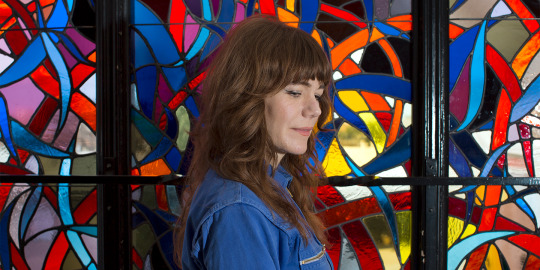
I ask Lewis where she thinks her optimism comes from, and she just says “survival.” This summarizes an equation of emotional resilience that more women than not are tasked with solving young. “Jenny has basically been on her own her entire life,” says her best friend, the musician Morgan Nagler. “She’s the definition of buoyant.”
It’s hard to imagine rock in 2019 without Lewis’ radical honesty, without her hyper-lyrical mix of the sweet and the sinister. “In the early 2000s, the really big indie artists were Bright Eyes and Death Cab for Cutie, and Jenny was one of the only women fronting that kind of music,” says Katie Crutchfield, aka Waxahatchee. “But in the next generation after that in indie music, there are so many women. How could she not have been a huge part of that?”
Crutchfield, now an indie figurehead in her own right, says no songwriter has directly influenced her more than Lewis. When she was still a 20-year-old punk living in Alabama, Crutchfield got the cover of The Execution of All Things tattooed prominently on her arm. Lewis’ odd, poppy, poetic songs had a musicality she hadn’t found in punk, but they still spoke to her as an outcast.
Seeing Rilo Kiley play for the first time—at a Birmingham venue she would go on to play herself—was a watershed moment. Crutchfield and her two sisters stood front row center, sang every word, and cried. “It was so huge to see a woman on stage holding a guitar, being powerful but still very feminine,” Crutchfield says. “That was my first foray into seeing that as a possibility for myself.” She recalls the exact outfit Lewis wore that night: red leather skirt, knee socks, T-shirt tucked in, and “a belt that was like a ruler—something you would see on a teacher.”
When Eva Hendricks, singer of sugarrushing New York pop-rock band Charly Bliss, was still in high school, she would spend days writing Lewis’ lyrics in her notebooks over and over, becoming attuned to the virtues of unsparing openness in songwriting. “Listening to that music unlocked something I otherwise wouldn’t have been able to understand about myself,” says Hendricks, who also appreciated how Lewis never downplayed her femininity. She distinctly recalls going to a Lewis record signing around 2014’s The Voyager: “I waited in line and when it got to be my turn, the only thing I could think to say was, ‘I can’t believe that your voice is coming out of a real human being.’”
Harmony Tividad, of Girlpool, was 12 the first time she heard Rilo Kiley, and calls Execution’s “The Good That Won’t Come Out” one of her favorite songs of all time. “That song is more like a diary entry, and vulnerable in this way that feels like a secret,” Tividad says. The unvarnished album opener peaks with Lewis speak-singing, “You say I choose sadness, that it never once has chosen me/Maybe you’re right.”
“I was a really emotional, awkward young person and felt kind of socially trapped,” Tividad, now 23, reflects. “I was a freak. And that song is about exploring all of this stuff inside of yourself that you can’t really show people. It’s about isolation, which I have felt a lot. This music was a soundtrack to that recalibration of personhood. It was very integral in me developing a sense of self.”
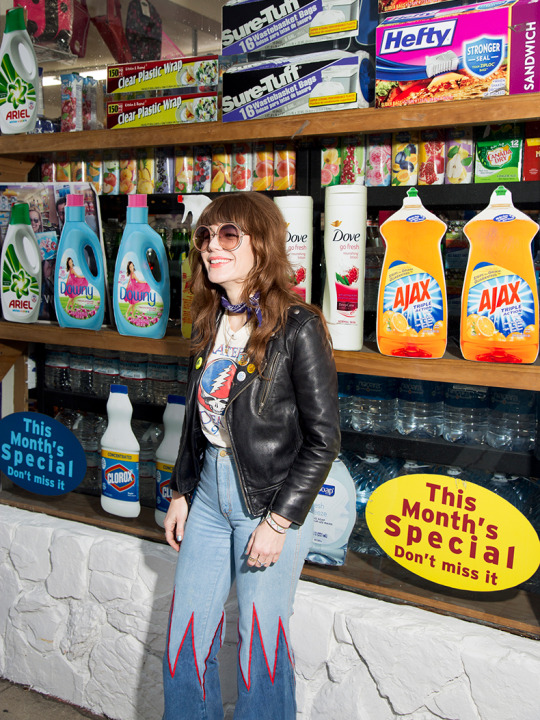
Lewis has resided in the quiet show-biz neighborhood of Studio City—which she refers to as “Stud City”—for 11 years. She mentions that her current home is still, technically, located in the Valley, and shoots me a conspiratorial look: “Don’t tell anyone.” There are retro-looking landlines all around the house (cell service is poor), and eye-catching vintage Christmas bulbs strung in the kitchen window. The house was previously owned by the late Disney animator Art Stevens, who worked on Fantasia and Peter Pan. Standing amid dozens of plants in the little green room at the heart of her home, sipping a coconut La Croix, Lewis enthuses about Mort Garson’s obscure 1976 electronic record, called Mother Earth’s Plantasia. The whole place has an air of magic.
Its infrastructure has been unchanged for decades, which stuck out to a location scout for Quentin Tarantino’s upcoming Charles Manson film, who knocked on the door one day and asked to take some photos. He did not return, but his business card is on Lewis’ refrigerator, alongside one from legendary songwriter Van Dyke Parks, and a Bob Dylan backstage pass. The fridge is mostly covered with hospital stickers from when Lewis was visiting her mom, who died of cancer in 2017, and inspired her new song “Little White Dove.”
The other big change in Lewis’ life was the dissolution of her 12-year relationship with singer-songwriter Jonathan Rice—after which, to shake up the energy of the house, Lewis’ friend and photographer Autumn de Wilde painted the walls of her bedroom a striking shade of rose. Directly outside the door is a life-size photo of her best friend Morgan, and the window of her bedroom, spanning the right wall, looks out to a built-in pool. The sill holds carefully arranged objects: ruby slippers, her passport, a candle, a plethora of sunglasses, and a violet notebook labeled “Lewis homework for On the Line.”
Talking with Lewis, the despairing elephant in the room is Ryan Adams, who played on the album. Two weeks before we meet, Adams was accused of sexual misconduct and emotional manipulation from musician Phoebe Bridgers, his ex-wife Mandy Moore, and others, including a woman who was allegedly 14 at the time, prompting a criminal investigation by the FBI. “The allegations are so serious and shocking and really fucked up, and I was so sad on so many levels when I heard,” Lewis tells me. “I hate that he’s on this album, but you can’t rewrite how things went. We started the record together two years ago, and he worked on it—we were in the studio for five days. Then he pretty much bounced, and I had to finish the album by myself.”
“This is part of my lifelong catalog,” Lewis continues. “The album is an extension of that thing that started back at my mom’s house—I had to save myself and my music, and get away from the toxicity. Ultimately, it’s me and my songs. I began in my bedroom with a tape recorder, and it was like my own fantasy world. I’ve taken all these weird turns in my life—with mostly men, sometimes women—but I feel like I’m finally back to that place, which is autonomy.”
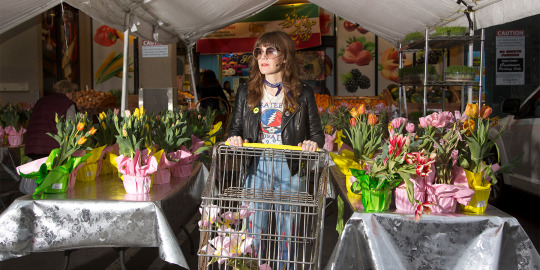
Though On the Line features an impressive array of players—Beck, Rolling Stones producer Don Was, Dylan drummer Jim Keltner, literally Ringo Starr—the album marks the first time Lewis has penned an album of songs solo, without co-writers, since Rabbit Fur Coat. “I’m not fully myself when I’m co-writing,” Lewis admits, describing a directness to the songs she’s penned with men, like Rilo Kiley’s “Portions for Foxes,” as opposed to songs she’s written alone, like “Silver Lining.” “With the songs I’ve co-written, it’s almost as if there’s a trimming of the emotional, rambling, poetic hysteria, which is where I live when I’m writing by myself,” Lewis says. “I don’t think of songs structurally. It’s a feeling, and I’m chasing the feeling.”
The cover of On the Line is a close-up of Lewis’ chest in an ornate blue gown. She chose the snapshot intuitively, from a pile of Polaroids taken by de Wilde, and only later recognized it as a deep homage to her mom, who once dressed similarly in Vegas and had an identical mole between her breasts. “Over the years I’ve become more comfortable in my skin,” Lewis says. “It’s funny to feel good in your skin when it’s not quite as tight as it used to be.”
With her voice sounding more refined than ever, On the Line finds Lewis singing about getting head in a black Corvette, feeling “wicked,” and—on the devastatingly delicate “Taffy”—sending nudes to a lover she knows will leave. “There’s a lot of fantasy in my songs,” Lewis tells me. “Sadly, I don’t get that much action. I should have gotten more.” She says she has always written about sex as “character projection,” but when she did so on Rilo Kiley’s final album, 2007’s Under the Black Light, it polarized fans. Lewis recalls one journalist who made a flow chart claiming to correlate the declining quality of the band’s music and the shrinking size of her hot pants. “It was so puritanical,” she says. But as the borders between the underground, mainstream, and genre have broken down, the artists who Lewis inspired are continuing to make space for more expansive expressions of sexuality.
The new record’s sound is warm and sleek, and when Lewis says she listened primarily to Kanye’s recent work while mixing it, I recall yet another wacky tale she shared with me at her house: Once, circa 2008, Lewis chanced upon Kanye at an airport. He played her a cut from 808s and Heartbreaks, and she played him her sprawling psych-rock triptych “The Next Messiah.”
Listening to On the Line, I find myself fixated on “Wasted Youth,” which uses a jaunty piano arrangement to deliver its neatly bleak refrain: “I wasted my youth on a poppy.” Lewis then slyly draws a line from the drugs to our numbing daily realities. When she sings, “Everybody knows we’re in trouble/Doo doo doo doo doo/Candy Crush,” I can feel my phone festering in my palm.
“I feel like that song is more about Candy Crush than heroin, if that’s even fucking possible,” Lewis says. “That’s the fuckin’ end: Candy Crush. It’s terrifying. I feel like my brain has been taken over by one of those weird fungi that grow out of the head of an ant in the rainforest. It’s like we’re spracked out on our Instagrams. It makes me feel like shit even talking about it.”
By the bridge, however, Lewis offers a blunt jolt of hope: “We’re all here, then we’re gone/Do something while your heart is thumping!” That’s a surprisingly heartening sentiment from a songwriter who has referred to herself as “a walking corpse,” who once made a springy emo anthem entitled “Jenny, You’re Barely Alive.”
“I’m in my 40s and something has shifted,” she says, when I ask what she does these days to help herself through. “Maybe you’re more aware of your own mortality, and have the balls to walk away from things, and be untethered, and do the reflection and the hard work—getting your ass out of bed and walking a couple miles, going to the gym, talking to a therapist.”
Lewis says her relationships with her female friends have deepened profoundly in recent years. “Maybe this is what we’re picking up on: the collective consciousness,” she says. “Women are talking to one another more. Reaching out to my girlfriends has helped me through these lessons that keep coming up. It’s the same lesson, where I’m like, ‘How am I in this situation with this fucking person that’s crazy… again? Why am I here and why have I stayed this long?’ And then my girlfriends are there to go: ‘Get the fuck out of there!’” (She is clear that this is not about her relationship with Rice, but rather about other romantic and working partnerships.)
I tell Lewis that these get-me-out predicaments remind me of her own song, “Godspeed,” from 2008’s Acid Tongue, which I had been revisiting quite a bit lately—a golden-hour piano ballad from one woman to another, a paean to “keep the lighthouse in sight,” to get “up and out of his house,” because “no man should treat you like he do.” “I wrote that for my friend,” Lewis says. “But maybe I wrote it for myself now.”
By the end of my time at Lewis’ house, the sun has set and we’re sitting in near total darkness, save for the neon pink glow of one of her many landlines. “You have to make a choice to be happy, or try to be,” Lewis insists. “Sometimes that involves moving away from people that you love, or that hurt you, or that are toxic. You have to find your bliss in life, right?”
I almost can’t believe that the same woman who provided me with my personal millennial-burnout anthems is asking me about unfettered joy—the artist who wrote the lyrics “I do this thing where I think I’m real sick, but I won’t go to the doctor to find out about it” and “I’m a modern girl but I fold in half so easily when I put myself in the picture of success” and “It must be nice to finish when you’re dead.” But I nod; it’s true.
#publication: pitchfork#album: on the line#year: 2019#person: sister#mention: childhood#song: pictures of success#mention: california#mention: childhood house#mention: parent's band#mention: father#mention: child acting#person: lucille ball#mention: drug addiction#mention: heroin#song: rabbit fur coat#person: morgan#person: katie crutchfield#song: the good that won't come out#mention: home#mention: mother's death#song: little white dove#mention: autonomy#mention: songwriting#mention: collaboration#mention: cover art#mention: sex#song: wasted youth#song: godspeed#mention: optimism
0 notes